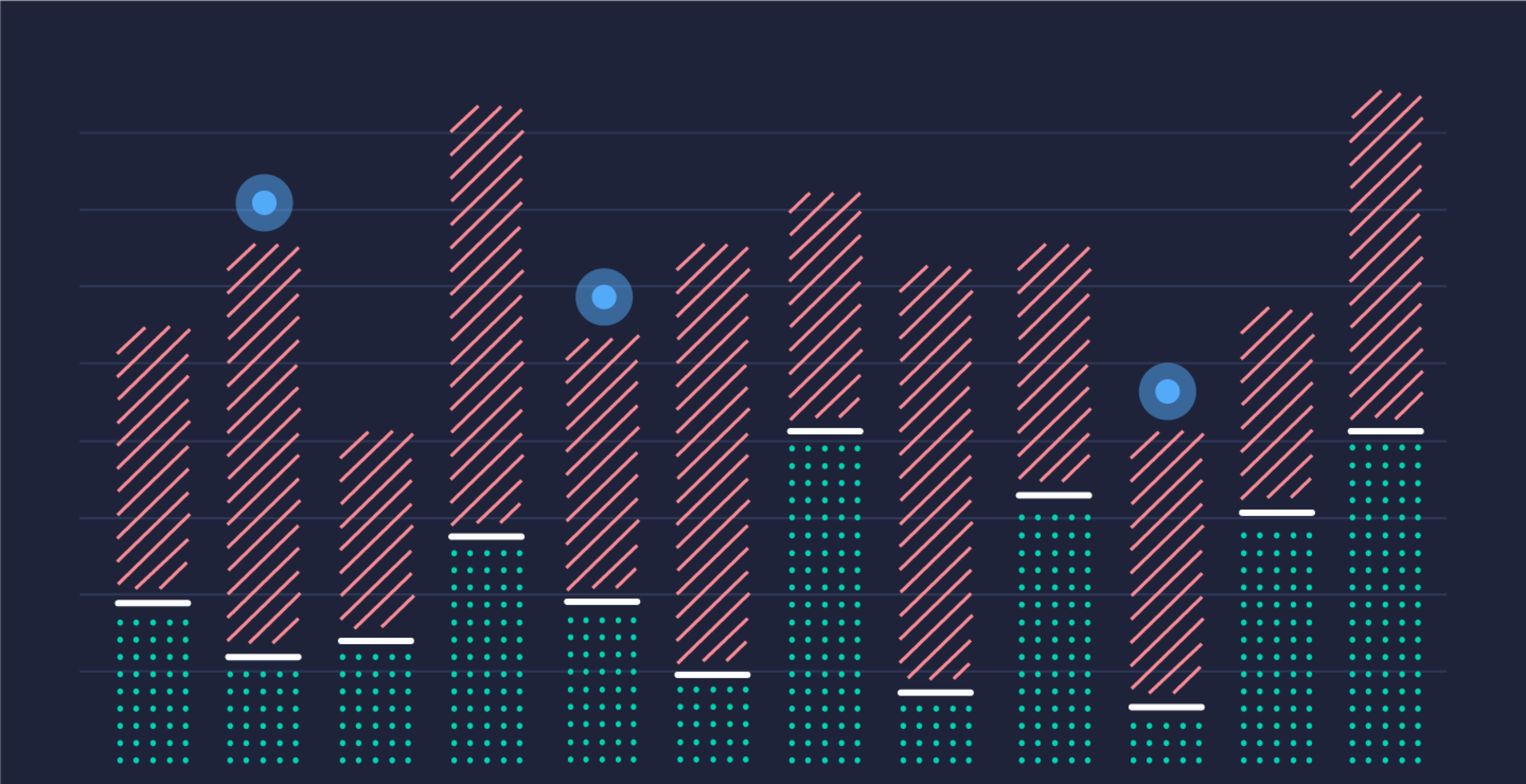New Study: The Best States for Women Entrepreneurs in 2017

America is home to 11.3 million female-owned businesses that employ more than 9 million workers and generate over $1.6 trillion in revenue for the economy. Women are now the majority owners of 38% of the country’s businesses—up from 29% in 2007.
While these statistics show that great strides have been made for women entrepreneurs, there’s still plenty of work to be done. Access to capital, education, and mentorship remain at the top of the list of issues for women starting and growing their businesses in the United States. To celebrate the end of a great Women’s History Month, we wanted to identify what states provide the best climate for this incredibly important group of entrepreneurs.
We asked:
- What states historically have more women-owned businesses?
- Does geography affect where women-owned businesses pull in the highest revenue?
- Are SBA resources distributed equally across the USA?
It’s our hope that this study helps inform Americans about the business climate in their home state and provides meaningful data for women thinking about starting their own businesses.
Here’s what the data shows:
Key Findings

#1: North Dakota

Fundera Score: 73.04
The Good:
- 5-year growth in average revenue of Women-Owned Businesses: 119.4% (2nd)
- Average revenue of Women-Owned Businesses: $200,872 (3rd)
- % of Women-Owned Businesses with Paid Employees: 14.3% (4th)
The Bad:
- Number of SBA Women’s Business Centers: 1 (tied 27th)
- % of Total Businesses Owned by Women: 30.8% (49th)
#2: South Dakota

Fundera Score: 68.43
The Good:
- 5-year growth in average revenue of Women-Owned Businesses: 95.4% (3rd)
- 5-year growth in number of Women-Owned Businesses: 38.9% (5th)
- Average revenue of Women-Owned Businesses: $166,579 (11th)
The Bad:
- Number of SBA Women’s Business Centers: 1 (tied 27th)
- % of Total Businesses Owned by Women: 30.1% (51st)
#3: Hawaii

Fundera Score: 67.06
The Good:
- Overall Unemployment Rate: 2.9% (3rd)
- % of Total Businesses Owned by Women: 38.6% (7th)
- 5-year growth in average revenue of Women-Owned Businesses: 43.6% (8th)
The Bad:
- Number of SBA Women’s Business Centers: 1 (tied 27th)
- 5-year growth in number of Women-Owned Businesses: 19.0% (37th)
#4: Minnesota

Fundera Score: 62.84
The Good:
- % of Women with Bachelor’s Degree or higher: 22.7% (6th)
- 5-year growth in average revenue of Women-Owned Businesses: 32.2% (11th)
- Overall Unemployment Rate: 4% (16th)
The Bad:
- % of Total Businesses Owned by Women: 33% (35th)
- 5-year growth in number of Women-Owned Businesses: 18.4% (42nd)
#5: Virginia

Fundera Score: 61.57
The Good:
- % of Women-Owned Businesses with Paid Employees: 12.2% (14th)
- % of Women with Bachelor’s Degree or higher: 21.1% (8th)
- Average revenue of Women-Owned Businesses: $162,126 (13th)
The Bad:
- % of Women-Owned Firms in Business for 11+ Years: 39.5% (32nd)
- Number of Businesses per 100 people: 7.9 (38th)
#6: Maryland

Fundera Score: 61.37
The Good:
- % of Total Businesses Owned by Women: 40.1% (3rd)
- % of Women with Bachelor’s Degree or higher: 21% (9th)
- 5-year growth in average revenue of Women-Owned Businesses: 31.6% (12th)
The Bad:
- 5-year growth in number of Women-Owned Businesses: 21.5% (34th)
- % of Women-Owned Businesses with Paid Employees: 9.9% (40th)
#7: Maine

Fundera Score: 61.27
The Good:
- Average revenue of Women-Owned Businesses: $233,434 (1st)
- 5-year growth in average revenue of Women-Owned Businesses: 178.9% (1st)
- Number of Businesses per 100 people: 10.5 (5th)
The Bad:
- % of Total Businesses Owned by Women: 30.9% (48th)
- 5-year growth in number of Women-Owned Businesses: 9.3% (50th)
#8: Iowa

Fundera Score: 58.63
The Good:
- 5-year growth in average revenue of Women-Owned Businesses: 61% (4th)
- Overall Unemployment Rate: 3.5% (10th)
- % of Women-Owned Firms in Business for 11+ Years: 43.3% (19th)
The Bad:
- Number of SBA Women’s Business Centers: 1 (tied 27th)
- % of Total Businesses Owned by Women: 32.7% (37th)
#9: Colorado

Fundera Score: 58.14
The Good:
- % of Women with Bachelor’s Degree or higher: 23.9% (1st)
- Overall Unemployment Rate: 3% (5th)
- Number of Businesses per 100 people: 10.4 (6th)
The Bad:
- Number of SBA Women’s Business Centers: 1 (tied 27th)
- % of Women-Owned Firms in Business for 11+ Years: 36.4% (41st)
#10: Montana

Fundera Score: 57.65
The Good:
- % of Women-Owned Businesses with Paid Employees: 15.9% (2nd)
- Number of Businesses per 100 people: 11.1 (2nd)
- 5-year growth in average revenue of Women-Owned Businesses: 30.3% (13th)
The Bad:
- % of Total Businesses Owned by Women: 32.4% (41st)
- Average revenue of Women-Owned Businesses: $123,992 (43rd)




Where Did Your State Rank?
Category 1: Women’s Entrepreneurship
Category 2: State Economic Health
Where’s your nearest SBA Women’s Resource Center?
Expert Opinions
What things should women entrepreneurs consider about a potential location before making a decision?

Partner at Female Founders Fund
Methodology
Fundera’s data for this survey came exclusively from the Bureau of Labor Statistics, the Small Business Administration, and the U.S. Census Bureau. There were 4 studies that we looked at in-depth: the 2007 and 2012 Survey of Business Owners, the 2014 Annual Survey of Entrepreneurs, and the 2015 American Community Survey.
To determine how each state ranked in terms of small business climate for women entrepreneurs, Fundera’s analysts ranked 50 U.S. states and the District of Columbia on 10 metrics in 2 categories. We then created a composite score by weighing the metrics at the following values.
Women’s Entrepreneurship (80% of Score)
- % of Women-Owned Firms in Business for 11+ Years (15 points)
- We used this metric as a stand-in for 10-year survival rate for businesses. While we were unable to track what percentage of women-owned businesses had lasted 10 years, we were able to see if a state had a higher percentage of established businesses. We viewed this metric as a historical indicator of a healthy business climate.
- % of Total Businesses Owned by Women (10 points)
- With more women business owners in a state, there’s a network effect that’s beneficial to women entrepreneurs. This metric is included as a quantity measurement.
- % of Women-Owned Businesses with Paid Employees (10 points)
- While having a large number of businesses is important, we also need to make the distinction between firms with and without paid employees. Many of America’s small businesses are sole proprietors, but for this study, we view firms with paid employees as an indicator of stronger economic performance within a state.
- 5-year growth in number of Women-Owned Businesses (10 points)
- A growing business community is what every state wants! This metric measures the growth of women-owned businesses between 2007 and 2012.
- Average revenue of Women-Owned Businesses (10 points)
- While quantity is important, we also need an indicator of quality. Average revenue is included in our score, so states with high-performing businesses are rewarded.
- 5-year growth in average revenue of Women-Owned Businesses (10 points)
- We wanted to add a time metric to measure revenue growth of women-owned businesses. This measures the growth in average revenue of women-owned businesses between 2007 and 2012.
- % of Women with Bachelor’s Degree or higher (10 points)
- Educational attainment is included in our score because an educated populace provides highly-skilled workers for businesses in a state. Another effect is that entrepreneurs often are closely linked with universities.
- Number of SBA Women’s Business Centers (5 points)
- The Small Business Administration operates a network of educational centers that seek to “level the playing field” for women entrepreneurs. We viewed the community and educational effect of these centers in our score.
State Economic Health (20% of Score)
- Overall Unemployment Rate (15 points)
- Communities with a lower unemployment rate have a healthier overall business community. This metric measured unemployment across a state—not just among women entrepreneurs.
- Number of Businesses per 100 people (5 points)
- We wanted a metric for the total number of businesses in a state—to supplement our data on women-owned businesses within a state.
Additional Resources
Forbes — New Study: Women Entrepreneurs Ask For Less Financing Than Men, Get Smaller Loans At Higher RatesFundera — The Top Small Business Loans for Women in 2017
National Women's Business Council — Grow Her Business
SBA — Resources for Women
Score — Find a Mentor

Meredith Wood
Meredith Wood is the founding editor of the Fundera Ledger and a GM at NerdWallet.
Meredith launched the Fundera Ledger in 2014. She has specialized in financial advice for small business owners for almost a decade. Meredith is frequently sought out for her expertise in small business lending and financial management.
- New Data Shows Where Small Businesses Are Most at Risk Due to Pandemic
- How Many Jobs Do Small Businesses Really Create?
- How to Start a Business in the Top Cities for Growth Entrepreneurship
- The Ultimate Countdown: New Jersey’s 5 Best Cities for Entrepreneurs
- State of Small Business Lending: Spotlight on Women Entrepreneurs

